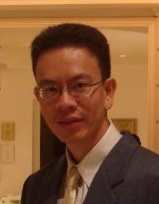The fourth IASTED Asian Conference on
Power and Energy Systems
AsiaPES 2010
Innovative Smart Grid Technologies for Sustainable Power and Energy Systems
November 24 – 26, 2010
Phuket, Thailand
SPECIAL SESSION ORGANIZER
Power Quality Impacts of Distributed Generations and Smart Grid
Abstract
The penetration of Distributed Generations (DGs) in the utility system is increasing due to various benefits of DGs. However, connection of DGs in parallel with the utility system can also cause various power quality issues such as voltage regulation, harmonics, flicker, ferroresonance, and protection coordination. These power quality impacts have to be carefully investigated in order to fully utilize DGs. The trend of future electric power systems lies with the concept of Smart Grid. Many technologies and infrastructures have to be improved in order to achieve the characteristics of Smart Grid. Though definitions of Smart Grid are different between countries, Smart Grid definitely impacts power quality of the power system. Again, power quality impacts have to be carefully studied. Therefore, this special session focuses on various aspects of power quality impacts of both DG and Smart Grid together.Biography of the Special Session Organizer

Asst. Prof. Dr. Thavatchai Tayjasanant received the B.Eng. degree from Chulalongkorn University, Bangkok, Thailand in 1994, the M.Sc. degree from the University of Manchester, Manchester, U.K. (formerly UMIST) in 1996, and the Ph.D. degree from the University of Alberta, Canada, in 2005, all in electrical engineering. Currently, he is an assistant professor at Chulalongkorn University where he has been since 1998. His research interests are in the fields of power quality, voltage sag, harmonic analysis, and power quality impacts of distributed generations and smart grid.
Submissions
Please email all submissions to taytaycu@gmail.com by September 1, 2010. Authors MUST include their full contact information in the email.













